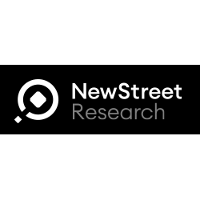New Street Research (NSR) Policy Advisor Blair Levin has been pondering the likelihood of the three-year-old Affordable Connectivity Program’s (ACP) demise. The ACP subsidizes broadband subscriptions for low-income households. Without a congressional infusion of cash, the FCC will have to shut down the ACP in May, Chairwoman Jessica Rosenworcel has told lawmakers, Inside Towers reported.
NSR agrees that the FCC will not be a major constraint on companies, particularly those that obtained permission at the time of the ACP sign-up to transition the customer to another plan. “But we think the numbers suggest there is, and will continue to be, a high level of uncertainty concerning the ability and willingness to pay related to about 70 percent of ACP recipients,” says Levin. “It is the reactions of those customers, far more than the reaction of the FCC, that will determine the rockiness of the road ahead, and given the economic instability of the group, one should not have confidence that the transition will be smooth, as an economic, marketing, or political manner.”
Conventional wisdom says the FCC is unlikely to be an impediment and NSR agrees, noting the agency will require ISPs to get an Opt-In for any service change. Where the ISP has received permission in advance, the company can transfer the customer to a new service and price tier, according to the analysts.
However, NSR is more concerned about customer reaction to the end of the ACP. “Given the ACP constituency, we think the number who can absorb a significant increase in a monthly subscription cost without complaining or dropping, is also lower than what we have heard others believe,” writes Levin.
The customers likely fit into three categories:
- Bucket A are customers who have had broadband before, which the Commission estimates is about 20 percent,
- Bucket B are those who have had broadband in the past but their finances vary so there are months where they don’t think they can afford it and drop off, “even though getting back on will prove more expensive over time,” writes Levin. The FCC believes nearly half of subscribers fit into this bucket, and
- Bucket C are customers who had broadband before and took advantage of the ACP subsidy to either upgrade the service or use the savings for other purposes, notes Levin.
NSR believes most of the customers in Bucket A stop subscribing while Bucket B customers return to being on again, off again customers. Most of Bucket C customers remain subscribed, but at a lower rate of service. NSR believes most of ACP customers will be confused initially, and then both confused and angered when their payments go up.
Since 174 mayors signed a letter asking Congress to continue funding the program, NSR believes some will find ways “to convince ISPs to offer a similar program.” The good news for ACP is the budget negotiations were moved back to March deadlines, according to NSR. “By then, we should have a better idea of the public reaction to news of the subsidy ending. That increases the odds of Congress refunding the ACP,” says Levin.
But overall, NSR thinks the odds of continuing the program are below 50 percent. “The macro-political consideration is that House Republicans simply do not want to do anything that might help Biden’s presidential prospects, even if he goes far more than half-way to address Republican policies. So here, while a straight up or down vote on ACP would likely pass, we don’t think House leadership will allow such legislation to reach the floor,” Levin states.
By Leslie Stimson, Inside Towers Washington Bureau Chief





Reader Interactions